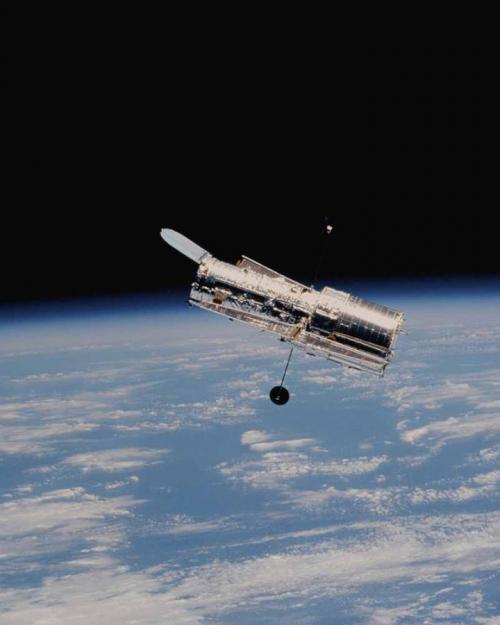A constellation of scientists, technologists and businesses will offer a glimpse into how space will be explored in the years to come during the inaugural Space Tech Industry Day, a virtual symposium hosted by Cornell on Friday, April 23, from 10 a.m. to 3 p.m.
Registration is free and open to members of the Cornell and business communities.
The theme of this year’s event is “New Opportunities in Space Technology.” Attendees will hear keynote talks and presentations from a lineup of industry professionals and Cornell faculty, including:
- Mason Peck, the Stephen J. Fujikawa ’77 Professor of Astronautical Engineering in the Sibley School of Mechanical and Aerospace Engineering, and former chief technologist for NASA;
- Alex Hayes, associate professor of astronomy and director of the Cornell Center for Astrophysics and Planetary Science in the College of Arts and Sciences (A&S), who helped develop the camera system for the Perseverance Mars rover; and
- Elaine Petro, assistant professor of mechanical and aerospace engineering and director of the Advanced Space Transit and Architectures Lab.
The final keynote speaker of the symposium will be Steve Squyres, professor emeritus of astronomy (A&S) and chief scientist at private aerospace company Blue Origin. For nearly 20 years, Squyres was the scientific principal investigator for NASA’s Spirit and Opportunity Mars rovers. He will discuss his current work and answer questions.
Companies and organizations represented at the event will include: Ursa Space Systems; Ball Aerospace; NASA’s Jet Propulsion Laboratory; Earth-imaging company Planet; space technology investment company Lux Capital; and precision instrument maker Moog.
“The goal of this event is to showcase some of the exciting new directions at Cornell in space and space technology and get a better understanding of what’s at the cutting edge in industry,” said David Erickson, the S.C. Thomas Sze Director of the Sibley School of Mechanical and Aerospace Engineering.
Faculty and students at Cornell – long recognized as one of the leading universities to study space science and technology – contribute to satellites, telescopes and space missions such as the Juno spacecraft orbiting Jupiter and the James Webb Space Telescope (JWST), set to launch later this year and begin imaging some of the universe’s earliest galaxies.
“It is a fitting moment to consider emerging opportunities and new partnerships on the space frontier, building on Cornell’s enviable legacy of space science and exploration,” said Ray Jayawardhana, the Harold Tanner Dean of Arts and Sciences and professor of astronomy, who uses data from missions such as NASA’s Transiting Exoplanet Survey Satellite and Kepler telescope for his own research, and who helped develop an instrument for JWST.
The event will conclude with a poster competition in which students, alumni and industry professionals will showcase space technologies they are developing.
Space Tech Industry Day is funded through an endowment gifted by K.K. Wang, professor emeritus of mechanical and aerospace engineering, and with support from the College of Arts and Sciences.
The event is being co-organized by the Sibley School of Mechanical and Aerospace Engineering and by the Department of Astronomy (A&S), with support from the Cornell Center for Astrophysics and Planetary Science and the Department of Earth and Atmospheric Sciences.
Syl Kacapyr is public relations and content manager for the College of Engineering.




